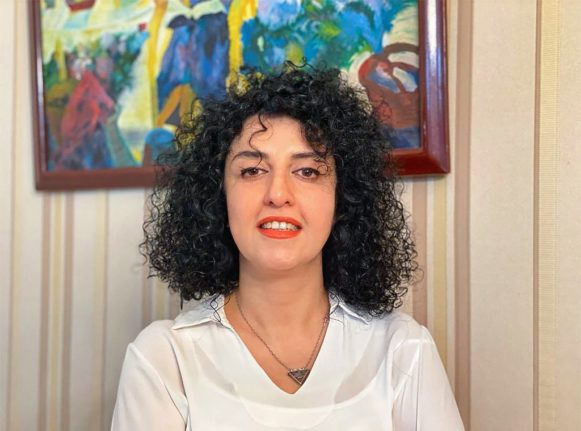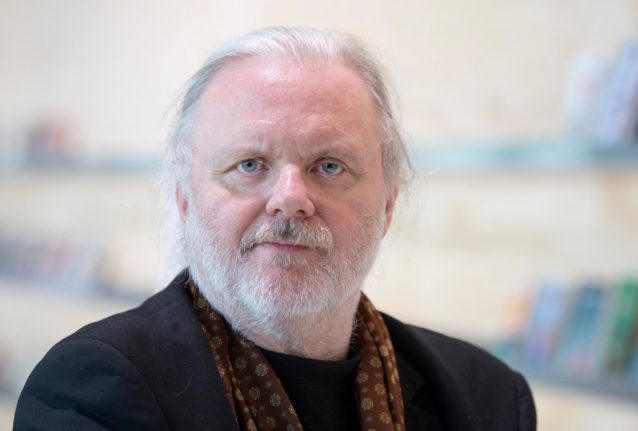Mohammadi was honoured “for her fight against the oppression of women in Iran and her fight to promote human rights and freedom for all,” said Berit Reiss-Andersen, the head of the Norwegian Nobel Committee in Oslo.
Mohammadi has spent much of the past two decades in and out of jail for her campaign against the mandatory hijab for women and the death penalty.
She is the vice-president of the Defenders of Human Rights Centre founded by Iranian human rights lawyer Shirin Ebadi, herself a Nobel Peace Prize laureate in 2003.
“Her brave struggle has come with tremendous personal costs. Altogether, the regime has arrested her 13 times, convicted her five times, and sentenced her to a total of 31 years in prison and 154 lashes,” Reiss-Andersen said.
Last year, against the backdrop of the war in Ukraine, the prize went to a symbolic trio opposed to the war — Russian human rights group Memorial, Ukraine’s Center for Civil Liberties and jailed Belarusian rights advocate Ales Bialiatski.
The prize comes with a gold medal, a diploma and a prize sum of 11 million Swedish kronor (about $1 million).
The award will be presented at a formal ceremony in Oslo on December 10th, the anniversary of the 1896 death of the prizes’ creator, Swedish inventor and philanthropist Alfred Nobel.
The Peace Prize is the only Nobel awarded in Oslo, with the other disciplines announced in Stockholm.
On Thursday, Norwegian playwright Jon Fosse, whose plays are among the most widely staged of any contemporary playwright in the world, won the Nobel Prize in Literature.
The Nobel season winds up Monday with the Nobel economics prize.



 Please whitelist us to continue reading.
Please whitelist us to continue reading.
Member comments